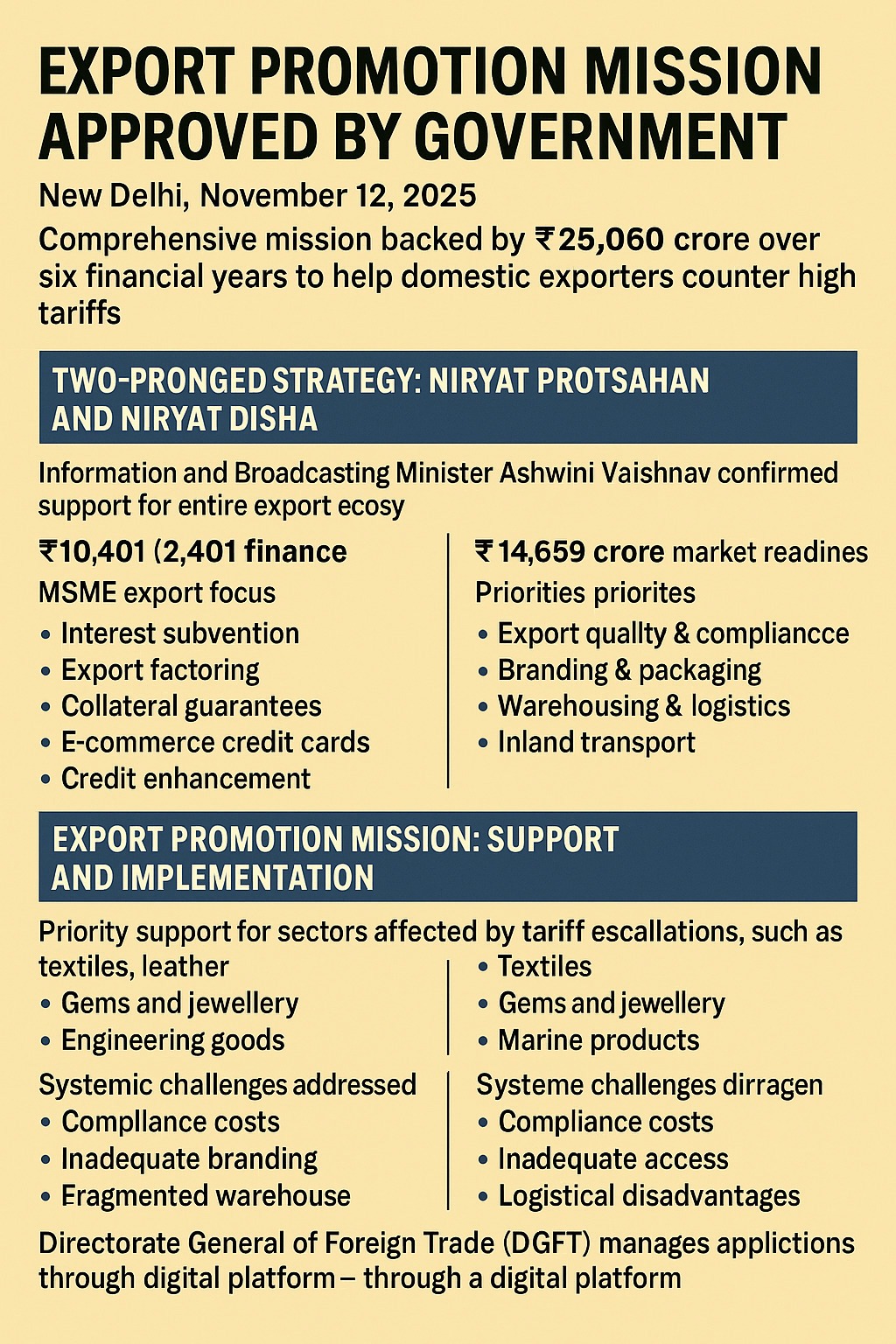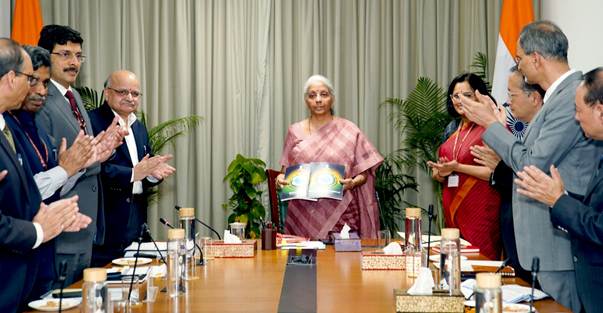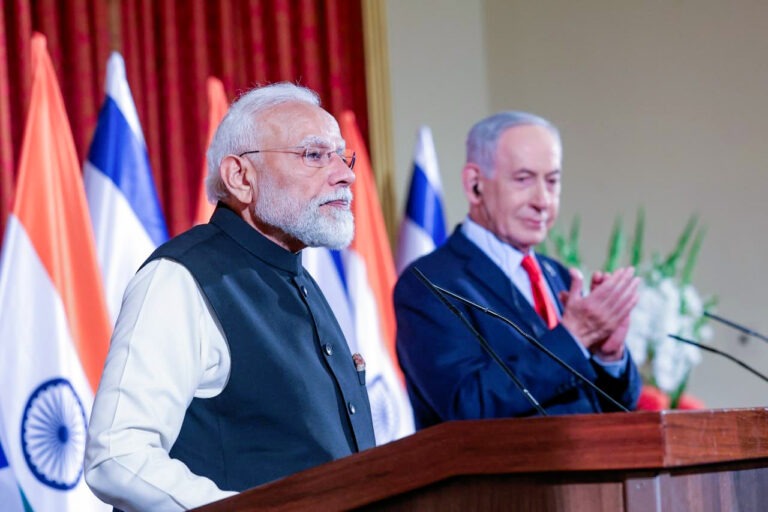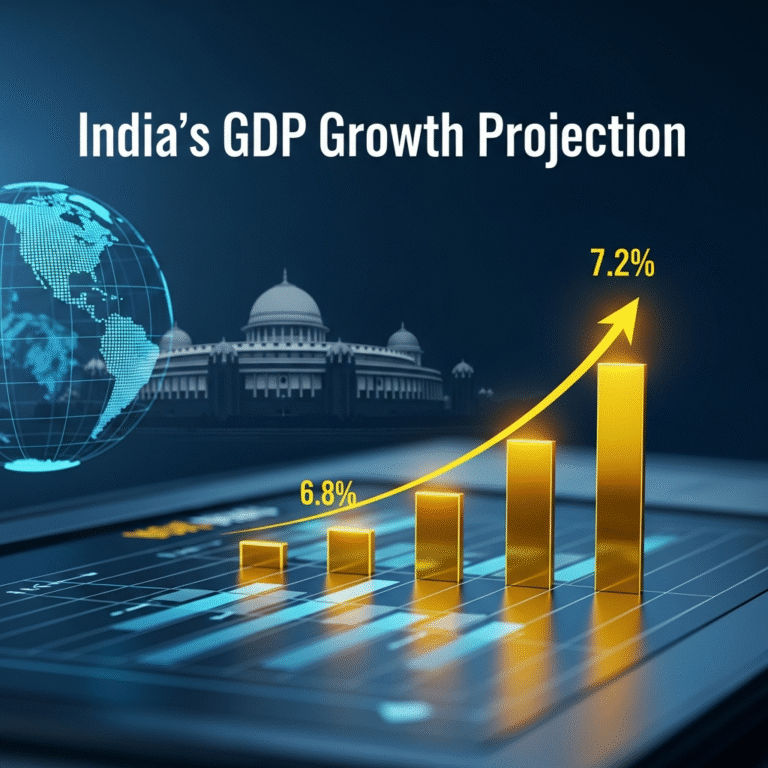
New Delhi, November 12, 2025. The Government has approved a comprehensive Export Promotion Mission backed by a substantial outlay of ₹25,060 crore over six financial years, starting this fiscal year. This strategic move directly helps domestic exporters counter high tariffs, including the hefty levies recently imposed by the US.
Information and Broadcasting Minister Ashwini Vaishnav confirmed that the comprehensive mission supports the entire export ecosystem, providing robust assistance from finance to market access.
Two-Pronged Strategy: Niryat Protsahan and Niryat Disha
The government will implement the mission through two distinct sub-schemes: Niryat Protsahan and Niryat Disha.
The Niryat Protsahan scheme, which commands an outlay of ₹10,401 crore, focuses primarily on affordable trade finance access for MSMEs. It employs a range of instruments, including interest subvention, export factoring, collateral guarantees, dedicated credit cards for e-commerce exporters, and crucial credit enhancement support aimed at diversification into new markets. This financial support directly addresses the structural challenge of limited and expensive trade finance currently constraining Indian exports.
Conversely, the Niryat Disha sub-scheme, with an allocation of ₹14,659 crore, focuses on non-financial enablers that enhance market readiness and global competitiveness. Its priorities include providing support for export quality and international compliance, offering assistance for international branding and packaging, subsidising export warehousing and logistics costs, and reimbursing inland transport expenses. Furthermore, the scheme drives comprehensive trade intelligence and capacity-building initiatives, ensuring exporters can meet global standards.
Export Promotion Mission: Support and Implementation
The mission specifically extends priority support to key sectors severely impacted by recent global tariff escalations. These high-impact areas include textiles, leather, gems and jewellery, engineering goods, and marine products. This targeted measure helps insulate domestic exporters from tariffs, such as the 50 percent tariff the US implemented on certain Indian goods starting August 27.
The mission is meticulously designed to directly address systemic challenges, including the high cost of compliance with complex international export standards, inadequate export branding, fragmented market access, and significant logistical disadvantages that particularly affect exporters in inland regions with low export intensity.
The Directorate General of Foreign Trade (DGFT) will act as the designated implementing agency, managing all processes—from initial application to final disbursal—through a dedicated digital platform seamlessly integrated with existing trade systems. This digital approach ensures speed, transparency, and accountability.





